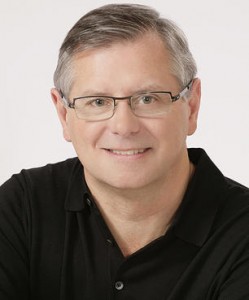
By Doug Dahmer, Emeritus Retirement Income Specialists
Special to the Financial Independence Hub
One of the most exciting and rewarding aspects of my job is working with my clients as they learn what I call ‘Conscious living.’ It’s a skill that has tremendous impact on their quality of life and their retirement plan.
My ‘Conscious’ clients have a retirement plan and clearly defined goals. They know what they want to do, when they want to do them and how big they want to do them. They also have the tools to explore the implication of each financial decision or potential alteration to their plan. And they understand the future impact that an ill-considered, near-term expenditure will create – in most cases putting some element of their goals and retirement plan at risk.
People who live consciously can account for where their cash flow comes from and where their cash flow goes. Many people see this as a boring pastime. However, my time-tested experience is that these people lead far more satisfying lives than the vast majority.
Understanding year-by-year demand for cash flow over the life of your plan is key. A good financial plan will identify the years of surplus and forecast years in deficit. It will calculate their magnitude. It will be able to calculate and demonstrate the impact of strategically allocating surpluses to future deficits and the danger of not doing so.
Years of Surplus, Years of Deficit
Some years will naturally have a surplus. Most surpluses tend to occur as things in our life disappear. Loans are paid off, kids are leaving home, grocery bills decline, education costs are behind us, and we reduce expensive hobbies or drop services like the movie channel in favor of less expensive Netflix.
Some years will have imbedded, non-recurring expenses that will create a deficit – this could be a new roof, a new car, a new furnace or a once in a lifetime vacation. This is not a problem for the conscious, as they will strategically direct money from the surplus years to service the future deficit years.
I believe most people don’t get what they want because they don’t know what they want. This may be because so many people live their lives unconsciously or as pop psychologists say “in the moment,” where each event occurs consecutively with no consideration of how it will impact the future. They have little understanding of how one financial decision can ripple down and have serious impact on the outcome of more important future requirements. Those who live their lives unconsciously will be the ones to say “If I had only known back then what I know now, I would not have done that.”
The Conscious document their Plans
The easiest way to make something happen is to describe what you want in detail, attach a deadline and determine the resources you will need to do it. By simply connecting these three elements you have moved 80% closer to achieving your goal. That’s all people who live consciously are doing.
They tie their goals, resources and timelines together in a properly documented retirement plan and then fight against the things that will get in their way. As a consequence, conscious clients accomplish more and at the same time are filled with greater confidence and peace of mind.
Our goal at Emeritus is to help our clients live consciously and take ownership of their future. We have built easy-to-use, yet powerful tools that allow them to robustly and clearly define the life they want to lead and to take these ideas for a test drive to understand the future implications of their decisions.
Doug Dahmer, CFP, is founder and CEO of Emeritus Retirement Income Specialists. With offices in Toronto and Burlington, Emeritus’ C3 process is one of the industry’s most comprehensive retirement planning processes.


A very good article and this is the type of planning that financial advisors should work on with their clients. Love the line “Most people don’t get what they want because they don’t know what they want”. The only issue I have is the take on ‘living in the moment”. To me many people spend way too much time remembering the past or worrying about the future and I try to remind myself and the kids to spend as much time as possible living in the moment., but of course you still need a detailed plan to serve as a roadmap. If you don’t know where you are going how will you know when you get there?